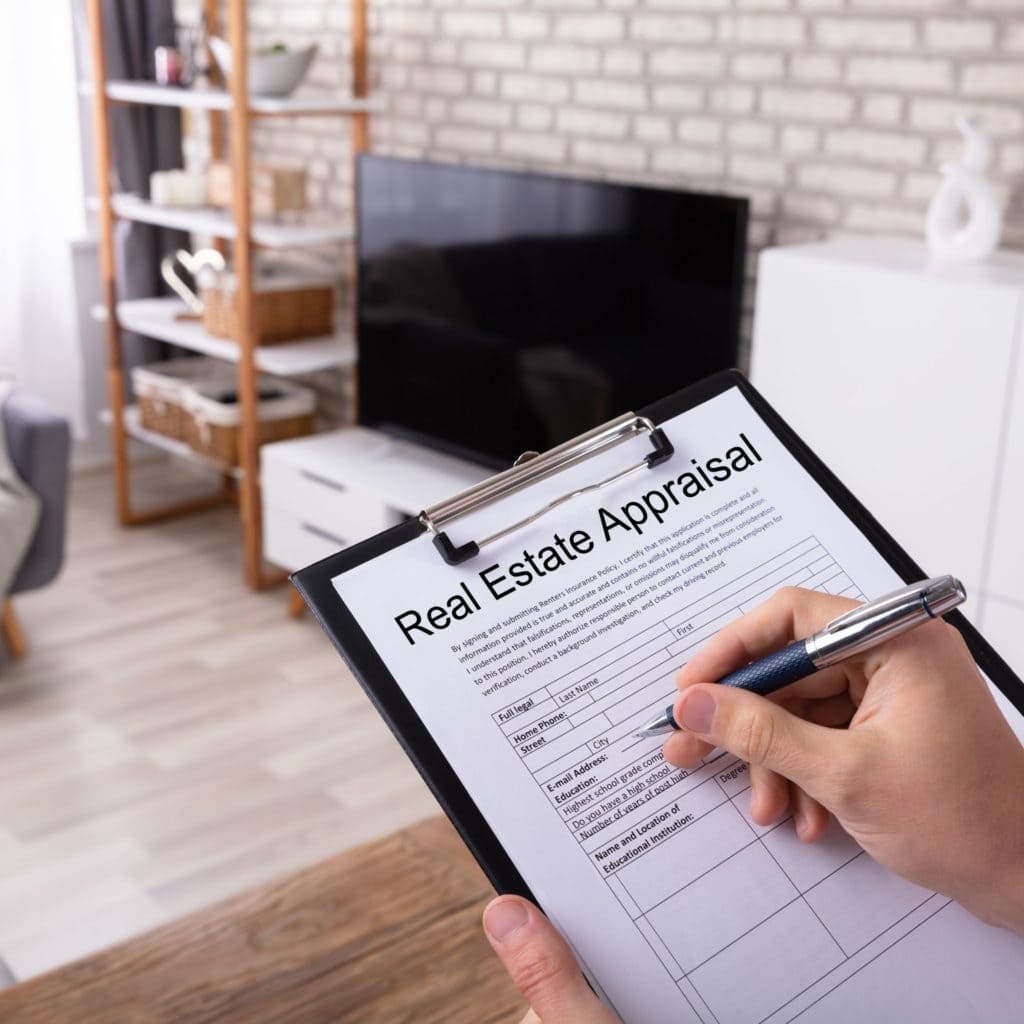
How to Sell Commercial Real Estate Off-Market
There are many things to think about when selling commercial real estate. You must consider your target market, what kind of property you’re selling: apartment buildings, industrial spaces, office spaces, and what you’re asking for.
There is much to consider, from analyzing the past to thinking about the future!
Selling commercial real estate off-market involves privately marketing the property to a select group of potential buyers, rather than listing it on public platforms. This strategy often relies on leveraging personal networks, hiring a real estate broker with a strong buyer database, or reaching out directly to investors and companies with a known interest in similar properties.
According to the Urban Land Institute’s (ULI) annual Real Estate Economic Forecast (October 2020), despite disruptions caused by the pandemic, industrial and logistics are the top sectors expected to perform above average, driven by e-commerce and warehousing needs.
To make the most money quickly, you’ll need to keep up with the latest commercial real estate industry trends. If you plan on selling commercial property soon, here are a few tips and tricks to help you sell commercial real estate!
Table of Contents
How to sell your commercial real estate off-market
If you sell commercial property by owner or off-market, there are some things to consider. One of the best and fastest ways to get the most money for your property is to sell it to off-market buyers or cash property buyers. These buyers aren’t actively looking for a property but may be interested in yours if they come across it.
The commercial real estate sale process typically begins with the property owner deciding to sell and then valuing the property, either independently or through a professional appraisal. This is followed by marketing the property, which can be done privately or through public listings, to attract potential buyers. Interested buyers will then conduct due diligence, reviewing the property’s financials, condition, and legal standing.
Negotiations on price and terms take place once a buyer is found, leading to the drafting and signing of a purchase agreement. The final steps involve completing any necessary inspections, securing financing if needed, and going through the closing process, where ownership is officially transferred, and the sale is finalized.
Pros of Selling Commercial Property Off-Market
When you are selling commercial real estate off-market, you’ll be able to:
- Sell your property fast
- Have more control over the sale process
- Avoid working with tire-kickers and lowballers
Cons of Selling Commercial Property Off-Market
Selling commercial property by owner is not all good news however. The main downside of selling commercial real property off-market is that you’ll have to work more to find prospective buyers.
You’ll need to be proactive and reach out to potential investors or commercial real estate firms who may be interested in your property. While this may take some extra time and effort, it can be well worth it.
See this post to get more tips on the pros and cons of selling commercial property off market.
How do I sell commercial property off-market without a realtor?

You don’t need to hire a realtor if you’re selling commercial real estate off-market.
Realtors will typically want to list your property on different marketplaces, which can take weeks or even months.
You can sell your off-market commercial properties by contacting us today.
Work with a Commercial Real Estate Broker
Working with a commercial real estate broker is always an option and can be a great way to get your property in front of more buyers. However, working with a commercial real estate broker who understands the commercial real estate market is important.
Some things to keep in mind when working with a broker:
- Make sure they are familiar with the current market conditions
- Ask them what kind of marketing plan they have for your property
- Find out what their commission rate is
- Ask them for references from past clients
- Make sure they are licensed
Pros of working with commercial real estate agents and brokers

Working with a commercial real estate agent or broker can have a lot of benefits, including:
- They might have an existing network of qualified buyers who may be interested in your property
- They will understand the current market conditions and what a potential buyer is looking for.
- They will have access to different marketplaces where your property can be listed for potential buyers or other commercial real estate agents to find.
- They handle most or all of the commercial real estate sales process.
- They usually stay on top of the commercial real estate industry and news.
Cons of working with commercial real estate agents and brokers
There are some downsides to working with a commercial real estate agent or broker as well, including:
- You will likely have to pay a high commission if you sell your property through them.
- You will have less control over the sale process when working with a broker or agent.
When Should I Consider Working With a Commercial Real Estate Agent/Broker?
There are a few times when you might want to consider working with a commercial real estate agent or broker:
- You have multiple properties to sell
- You don’t have the time or resources to sell your property yourself
- You don’t know how to get in touch with potential buyers yourself
- You need someone to help you navigate the current commercial real estate market conditions
- You’re not sure what your property is worth in the current market.
If you have decided to work with a commercial real estate broker, ask him the questions in this blog about “Questions To Ask A Commercial Real Estate Broker“
Steps to take when selling commercial real estate property

Step 1: Hire an Inspector
How to sell commercial property without a realtor? The first thing you’ll need to do is hire an inspector to check the condition of your property. Most engineering firms can provide a Property Conditions Assessment or PCA to give you an idea of your building condition. This will help you identify any potential problems that could dissuade a buyer from making an offer on your property.
Step 2: Get a Commercial Appraisal
The next step is to get a commercial real estate appraisal. A commercial real estate appraisal will give you an idea of your property is worth in the current market.
Step 3: Set a price
Commercial selling by the owner means a lot of work to do. You’ll need to set a price for your commercial property that is competitive in the current market.
After you have completed the step to getting an appraisal for your property, you should have a better idea of your commercial property’s value. You can now set a price reflective of the current market conditions.
A study by the National Association of Realtors (NAR) found that commercial properties with green certifications have a 7% higher occupancy rate, 8% higher rent, and an increase in sale price of up to 31% compared to similar properties without certification.
Get a better idea on commercial real estate valuation here.
Step 4: Market your Property
How to sell commercial real estate fast? The next step is to market your property. You can do this yourself by creating an ad for your property and posting it on various websites. You can work with a commercial real estate broker who will access a more extensive network of potential buyers or contact us as commercial property cash buyers to sell your commercial property quickly.
Step 4: Negotiate With Potential Buyers

Once you have found a potential buyer, you’ll need to negotiate with them to agree to sell your commercial property.
You’ll need to consider the current market conditions, the condition of your property, and any repairs that may need to be made.
We recommend engaging a real estate attorney experienced in commercial real estate property and transactions to help you negotiate the terms and conditions of the sales contract.
Here is some tips on how to find commercial real estate buyers.
Step 5: Close on the Property
After negotiating an agreement with the potential buyer, you must close on the property. This will involve running a title search, allowing the buyer to conduct their due diligence, then closing and transferring the property’s title.
You’ll also need to pay any commissions from the broker or agent involved in the sale. See our blog on commercial real estate closing costs for more insight on how many fees you may have to consider.
Tips for selling commercial real estate
Selling commercial real estate may seem like a long and drawn-out process, but here are a few tips to help you in the process:
Set realistic expectations for the sale of your commercial property
When selling commercial real estate, it is important to consider the current market conditions and price your property accordingly.
You should also be aware of the time it takes to sell commercial real estate and be prepared for a long process.
Market your property to the right audience

When selling commercial real estate, it is important to market your property to the right audience. You can do this by working with a broker specializing in marketing commercial properties or advertising your property on websites that cater to commercial real estate investors.
Be prepared to negotiate.
When selling commercial real estate, you should be prepared to negotiate with potential buyers. You’ll need to consider the current market conditions and the condition of your property when negotiating a price for your property.
Do Your Due Diligence
Doing your due diligence involves conducting a thorough investigation and evaluation of a property before proceeding with its sale. This process includes reviewing financial records, assessing the physical condition of your property through inspections, verifying legal compliance, and evaluating the local market and zoning laws.
Doing your own commercial real estate due diligence will help identify any potential risks that the buyer may impose, allow you to price competitively with the market in your area, and give you more negotiating power.
Get a Commercial Real Estate Attorney
A commercial property lawyer can help you in the selling process by reviewing contracts, negotiating with buyers, and closing on the property.
They can also help you with any legal issues during the selling process. We highly recommend that you get a commercial real estate lawyer before proceeding with any sale.
Review all service agreements and contracts

When selling commercial real estate, you’ll work with many different service providers, such as brokers, inspectors, and appraisers.
Reviewing all service agreements and contracts before signing them to understand the terms and conditions is essential.
Determine all the property owners and the ownership types
When selling commercial real estate, you must determine all the property owners and the ownership types.
This will help you negotiate an agreement with a potential buyer.
Be prepared to make repairs or renovations.
If your commercial property needs repairs or renovations, be prepared to make them before selling. This can be a costly expense, but this can also be avoided by contacting commercial real estate cash buyers.
Check if you qualify for a 1031 tax-deferred exchange
When selling commercial real estate, you may be able to defer the capital gains taxes by doing a 1031 tax-deferred exchange.
To qualify for this, you’ll need to follow specific rules and have the proceeds from the sale of your property reinvested in a new commercial property within 180 days.
See our blog post on 1031 exchanges.
Be Prepared For Capital Gains Tax
When selling commercial real estate for more than the purchase price, expect to pay capital gains tax on the profit. The tax rate varies based on how long the property was held before selling. Consider reinvesting the proceeds into similar investments to possibly defer paying capital gains tax through mechanisms like a 1031 exchange.
Keep detailed records of the original purchase price, improvements made, and expenses related to the sale to accurately calculate the tax on your commercial real estate.
Should You Sell Your Commercial Real Estate Property Off-Market or On-Market?
There is no definite answer when it comes to deciding whether or not to sell your commercial real estate property off-market or on-market. If you are thinking: “selling my commercial property would be for the best” then make sure you have considered all your options before committing to one.
On the one hand, selling commercial real estate off-market is a great way to avoid paying a commission to a realtor. With the right commercial property buyers, selling commercial real estate can be quick, and you may have more control over the sale process.
However, selling your commercial property on-market can give you access to a larger pool of potential buyers.
It’s ultimately up to you to decide whether or not working with a realtor is worth it or if selling your property off-market makes more sense for your situation.
FAQs
Who are property cash property buyers?
Commercial real estate investors buy and sell commercial property with cash. Commercial property cash buyers can therefore provide immediate financial support in exchange.
A commercial real estate investor provides answers to various potential property issues that can cause a lot of trouble for the seller. Commercial investors acquire distressed property from owners whose buildings cannot be repaired to attract commercial property buyers.
See our post on property cash buyers for more info.
Are off-market sales only suitable for certain types of commercial properties?
Off-market sales can benefit all types of commercial properties, including office buildings, retail spaces, industrial facilities, and multi-family residential properties.
Can I sell a commercial property off-market if it is currently leased?
Yes, you can sell a commercial property off-market even if it is currently leased. However, it’s important to communicate with the tenant and make sure that the lease agreement is appropriately addressed during the sales process.
Are off-market sales more time-efficient compared to traditional listings?
Off-market sales can be more time-efficient than traditional listings because they involve targeted marketing efforts directed at a select group of potential buyers. This approach reduces the time spent on public showings and evaluating offers from unqualified buyers.
Can I conduct an off-market sale without the assistance of a commercial real estate broker?
While conducting an off-market sale without a broker is possible, working with an experienced commercial real estate broker can significantly enhance your chances of connecting with qualified buyers and negotiating favorable terms.
What are some alternative strategies to sell commercial real estate off-market?
In addition to personal networks and commercial real estate brokers, you can explore other strategies, such as attending industry events, joining professional associations, and utilizing online platforms that facilitate off-market transactions.
About The Author

Jesse Shemesh
Disclaimer
Please note that Point Acquisitions is not a tax expert or tax advisor. The information on our blogs and pages is for general informational purposes only and should not be relied upon as legal, tax, or accounting advice. Any information provided does not constitute professional advice or create an attorney-client or any other professional relationship. We recommend that you consult with your tax advisor or seek professional advice before making any decisions based on the information provided on our blogs and pages. Point Acquisitions is not responsible for any actions taken based on the information provided on our blogs and pages.
1031 Exchange Capital Gains Tax Deferral
According to a 2021 report by the National Real Estate Exchange Services (RES), over 240,000 1031 exchange transactions were completed in the United States, totaling $100 billion. This impressive figure underscores the role of 1031 exchanges in the real estate…
Read More1031 Exchange Benefits
As of Q4 2023, the national vacancy rate for all commercial property types in the United States sat at 9.2%, according to CBRE’s latest insights and research. This represents a slight decrease compared to the previous quarter and suggests a…
Read More1031 Exchange Legal Considerations: A Must-Read Guide
You’re in the right place if you’re considering a 1031 exchange for your commercial real estate investments. Whether you’re a seasoned investor or just dipping your toes into the market, understanding the legal landscape of 1031 exchanges is key to…
Read More

